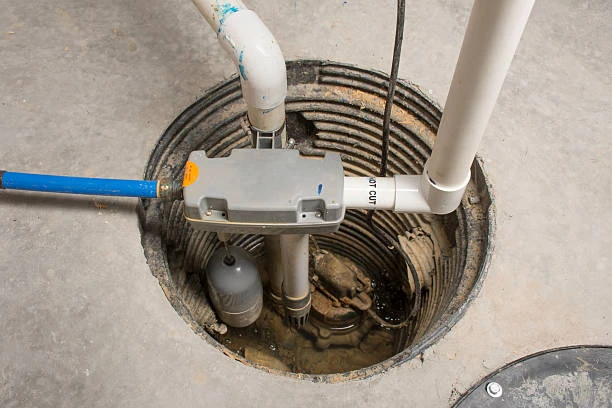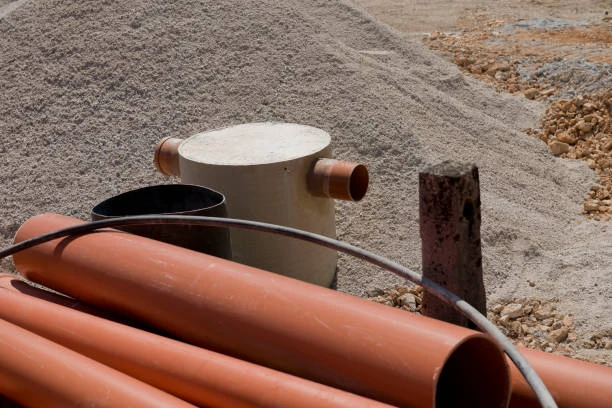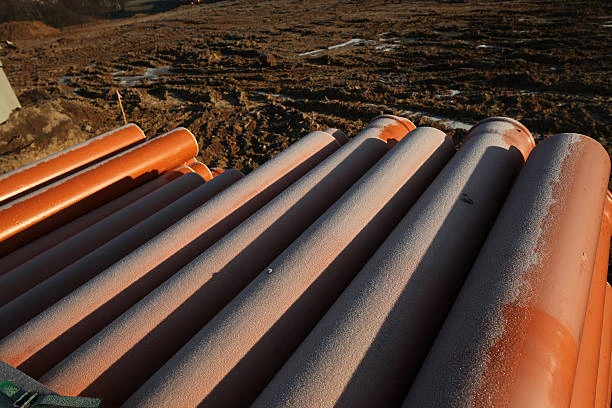Introduction
When it comes to plumbing, drainage, and industrial systems, UPVC pipe and fittings have emerged as a popular choice due to their robustness, reliability, and cost-effectiveness. UPVC pipes and fittings offer numerous benefits over traditional materials like metal pipes and other plastics. In this article, we’ll explore the advantages of UPVC pipe and fittings in different applications, examining why they are a preferred choice for homeowners, businesses, and industries alike.
What is UPVC?
UPVC is a type of PVC (Polyvinyl Chloride) that is unplasticized, meaning it doesn’t contain any added plasticizers that make PVC more flexible. This gives UPVC a rigid and durable structure. UPVC pipes and fittings are widely used for cold water plumbing, drainage systems, irrigation systems, and even in industrial applications due to their excellent strength-to-weight ratio, corrosion resistance, and versatility.
Key Advantages of UPVC Pipe and Fittings
1. Durability and Longevity
One of the standout features of UPVC pipe and fittings is their durability. UPVC pipes are designed to withstand the test of time without corroding, rusting, or degrading under harsh environmental conditions. Their resistance to chemicals, UV rays, and moisture makes them ideal for a wide range of applications, from home plumbing to large-scale industrial systems.
Why it matters: Whether you’re installing a plumbing system or a drainage line, durability is crucial to avoid expensive repairs and replacements. UPVC pipes can last for decades, making them a long-term solution for your plumbing needs.
2. Cost-Effectiveness
UPVC pipe and fittings are cost-effective in both initial installation and long-term maintenance. The materials used to manufacture UPVC pipes are inexpensive compared to alternatives like copper, steel, or even PPR (Polypropylene Random Copolymer). Additionally, UPVC pipes require little maintenance and are highly resistant to issues like corrosion or scaling, reducing the need for frequent repairs.
Why it matters: The low upfront cost, combined with minimal maintenance needs, makes UPVC pipes an attractive option for both residential and commercial plumbing systems.
3. Lightweight and Easy to Handle
UPVC pipe and fittings are much lighter than their metal counterparts. This makes them easier to transport and handle during installation. The lightweight nature also reduces the labor costs associated with transportation and installation.
Why it matters: The ease of installation translates to quicker project timelines and lower labor costs. Since the pipes are easy to handle, installation can be more efficient, reducing overall project costs.
4. Resistance to Corrosion and Chemicals
Unlike metal pipes, UPVC pipes do not corrode or rust. This is particularly important for water and sewage systems, where rust can contaminate the water and cause health risks. UPVC pipes are also resistant to a wide range of chemicals, including acids and alkalis, which makes them suitable for both residential and industrial use.
Why it matters: The ability to resist corrosion and chemicals makes UPVC pipes ideal for applications in harsh environments, such as wastewater systems and chemical transport lines, ensuring longevity and functionality.
5. Smooth Inner Surface for Enhanced Flow
UPVC pipes feature a smooth internal surface, which helps to reduce friction and improve the flow of water or other materials. This smooth surface prevents the buildup of deposits, reducing the risk of clogs and blockages. As a result, the pipes are able to maintain optimal performance over time.
Why it matters: Improved flow efficiency means less maintenance and fewer interruptions in the system. Whether it’s a residential plumbing system or an industrial drainage system, smooth internal surfaces help to maintain efficient operations for a longer period.
6. Easy Installation
The installation of UPVC pipes and fittings is relatively simple, especially when compared to materials like metal. UPVC pipes are joined using solvent cement or rubber seals, making the process straightforward and fast. Additionally, the flexibility of UPVC fittings allows for easier adaptation to different installation scenarios.
Why it matters: Fast and easy installation reduces project timelines and costs. Whether you’re undertaking a DIY project or working with professionals, the installation process for UPVC pipes is hassle-free.
7. No Leaks or Joints Under Pressure
UPVC pipe fittings are designed to create a tight seal, which minimizes the risk of leaks. This is especially important in high-pressure systems, as even a small leak can lead to significant water loss or system failure. UPVC’s excellent sealing properties ensure that your plumbing or drainage system remains intact under pressure.
Why it matters: Leak prevention is essential for maintaining the integrity of plumbing and drainage systems. With UPVC pipes, you can trust that your system will operate efficiently without the risk of unexpected leaks.
Applications of UPVC Pipe and Fittings
UPVC pipes and fittings are versatile and can be used in a wide range of applications:
1. Residential Plumbing Systems
UPVC pipes are commonly used in cold water plumbing systems for both hot and cold water distribution. They are particularly useful in regions where there is a concern about water contamination, as UPVC does not alter the taste or quality of water.
2. Drainage Systems
UPVC pipes and fittings are extensively used in sewage, wastewater, and stormwater drainage systems. The smooth internal surface of UPVC pipes minimizes blockages and ensures efficient waste removal, making it ideal for residential, commercial, and industrial drainage systems.
3. Irrigation Systems
UPVC pipes are also widely used in irrigation systems for agriculture and landscaping. They are resistant to the elements and can handle the pressure required for water distribution in fields, gardens, and large-scale agricultural operations.
4. Industrial Applications
Many industries, including chemical processing, pharmaceuticals, and food production, use UPVC pipes and fittings for fluid and gas transport systems. The resistance of UPVC to chemicals makes it particularly well-suited for such applications.

Challenges and Considerations When Using UPVC Pipes
1. Limited Temperature Resistance
While UPVC is highly resistant to a wide range of chemicals and environmental factors, it is not suitable for use in hot water systems. The material can soften under high temperatures, which could lead to deformation or failure. For hot water applications, CPVC (Chlorinated Polyvinyl Chloride) or PPR pipes are better alternatives.
2. UV Degradation
UPVC pipes can degrade when exposed to prolonged direct sunlight. UV rays can cause the material to become brittle, leading to potential cracks or breaks. However, this can be mitigated by burying the pipes underground or using UV-protective coatings.
Conclusion
UPVC pipe and fittings have become an essential component in modern plumbing and drainage systems due to their many advantages. They are cost-effective, durable, lightweight, and resistant to corrosion, making them an ideal choice for both residential and industrial applications. While there are some limitations, such as their sensitivity to high temperatures and UV degradation, the benefits far outweigh the challenges. For homeowners, businesses, and industries looking for a reliable, long-lasting, and cost-effective piping solution, UPVC pipes and fittings offer an excellent choice.
FAQs
1. Can UPVC pipes be used for hot water applications?
UPVC pipes are not suitable for hot water systems, as they can soften and warp under high temperatures. For hot water, CPVC or PPR pipes are better alternatives.
2. How do I prevent UPVC pipes from UV degradation?
To protect UPVC pipes from UV damage, ensure that they are buried underground or shielded from direct sunlight using UV-resistant coatings or coverings.
3. Are UPVC pipes resistant to rust?
Yes, UPVC pipes are resistant to rust and corrosion, making them ideal for use in water and drainage systems without the risk of contamination.
4. How long do UPVC pipes last?
UPVC pipes can last for decades when properly installed and maintained. Their durability and resistance to corrosion ensure that they remain functional for many years.
5. Can UPVC pipes be used for both residential and industrial systems?
Yes, UPVC pipes are versatile and can be used in both residential plumbing and large-scale industrial applications. Their strength and chemical resistance make them suitable for various


















